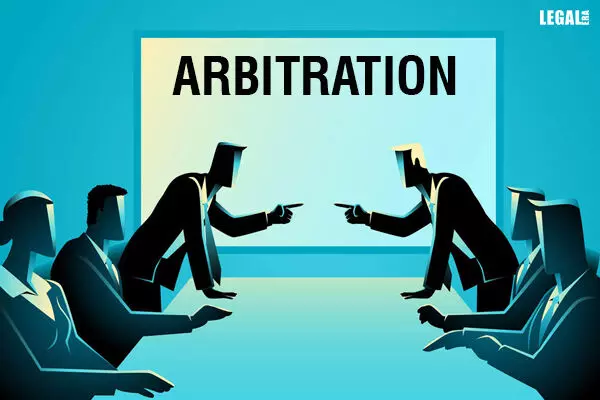- Home
- News
- Articles+
- Aerospace
- AI
- Agriculture
- Alternate Dispute Resolution
- Arbitration & Mediation
- Banking and Finance
- Bankruptcy
- Book Review
- Bribery & Corruption
- Commercial Litigation
- Competition Law
- Conference Reports
- Consumer Products
- Contract
- Corporate Governance
- Corporate Law
- Covid-19
- Cryptocurrency
- Cybersecurity
- Data Protection
- Defence
- Digital Economy
- E-commerce
- Employment Law
- Energy and Natural Resources
- Entertainment and Sports Law
- Environmental Law
- ESG
- FDI
- Food and Beverage
- Gaming
- Health Care
- IBC Diaries
- In Focus
- Inclusion & Diversity
- Insurance Law
- Intellectual Property
- International Law
- IP & Tech Era
- Know the Law
- Labour Laws
- Law & Policy and Regulation
- Litigation
- Litigation Funding
- Manufacturing
- Mergers & Acquisitions
- NFTs
- Privacy
- Private Equity
- Project Finance
- Real Estate
- Risk and Compliance
- Student Corner
- Take On Board
- Tax
- Technology Media and Telecom
- Tributes
- Viewpoint
- Zoom In
- Law Firms
- In-House
- Rankings
- E-Magazine
- Legal Era TV
- Events
- News
- Articles
- Aerospace
- AI
- Agriculture
- Alternate Dispute Resolution
- Arbitration & Mediation
- Banking and Finance
- Bankruptcy
- Book Review
- Bribery & Corruption
- Commercial Litigation
- Competition Law
- Conference Reports
- Consumer Products
- Contract
- Corporate Governance
- Corporate Law
- Covid-19
- Cryptocurrency
- Cybersecurity
- Data Protection
- Defence
- Digital Economy
- E-commerce
- Employment Law
- Energy and Natural Resources
- Entertainment and Sports Law
- Environmental Law
- ESG
- FDI
- Food and Beverage
- Gaming
- Health Care
- IBC Diaries
- In Focus
- Inclusion & Diversity
- Insurance Law
- Intellectual Property
- International Law
- IP & Tech Era
- Know the Law
- Labour Laws
- Law & Policy and Regulation
- Litigation
- Litigation Funding
- Manufacturing
- Mergers & Acquisitions
- NFTs
- Privacy
- Private Equity
- Project Finance
- Real Estate
- Risk and Compliance
- Student Corner
- Take On Board
- Tax
- Technology Media and Telecom
- Tributes
- Viewpoint
- Zoom In
- Law Firms
- In-House
- Rankings
- E-Magazine
- Legal Era TV
- Events
Gauhati High Court: Courts Obliged To Scrutinize And Reject Time-Barred Claims, Averting Costly Arbitration Processes

Gauhati High Court: Courts Obliged To Scrutinize And Reject Time-Barred Claims, Averting Costly Arbitration Processes
Justice Michael Zothankhuma, presiding at the Gauhati High Court, emphasized that courts have a responsibility to scrutinize and dismiss time-barred claims to shield parties from being ensnared in prolonged and expensive arbitration proceedings.
The petitioner approached the Gauhati High Court (“High Court”) and filed an application under Section 11(6) of the Arbitration and Conciliation Act, 1996 (“Arbitration Act”) seeking the appointment of an arbitrator in accordance with the arbitration clause outlined in a contract agreement. The petitioner argued that Clause 15.0 of the contract agreement specified arbitration and dispute resolution governed by Clauses 63 and 64 of the General Conditions of Contract. It asserted that it had fulfilled all contractual obligations by completing the work in June 2017.
However, despite multiple requests submitted for the release of the security deposit and PVC bill, the respondents failed to comply. The petitioner stated that letters requesting release had been submitted on various occasions, including one dated May 11, 2021. With no response from the respondents, the petitioner invoked the arbitration clause via a letter dated January 28, 2023, to address the dispute.
Additionally, the petitioner pointed out that although a final bill for the contract work was signed by the Deputy Chief Engineer/Con/SPTR on November 19, 2018, the petitioner disputed its contents. Allegedly, the respondents did not honour the arbitration clause, prompting the petitioner to seek court intervention for the appointment of an arbitrator to resolve the disagreement.
On the contrary, the respondents argued that the application under Section 11(6) of the Arbitration Act was time-barred in accordance with Section 21 and Sections 43(1) and 43(2) of the Arbitration Act.
The High Court referred to Section 21 of the Arbitration Act, which stipulates that arbitral proceedings concerning a specific dispute commence upon the receipt of a request for arbitration by the respondent, unless otherwise agreed upon by the parties. It was noted that the petitioner's letters indicated the completion of the contract work in June 2017 and the signing of the final bill by the Deputy Chief Engineer/Con/SPTR on November 19, 2018. However, the petitioner's request for the appointment of an arbitrator was made only on January 28, 2023, well beyond the three-year period from the completion of the contract to the signing of the final bill.
Citing the Supreme Court's decision in B and T AG v. Ministry of Defense, the High Court emphasized the application of Article 137 of the Limitation Act, which imposes a three-year limitation period for actions where no specific limitation is provided elsewhere. The Supreme Court in this case held that the claim for arbitration must be raised promptly when the right to require arbitration accrues, similar to the initiation of a civil action when the cause of action arises.
Moreover, the High Court held that Section 43(1) and (2) of the Arbitration Act, aligning arbitration proceedings with the provisions of the Limitation Act, confirmed that the petitioner's request for arbitration made on January 28, 2023, fell outside the permissible time frame, exceeding the three-year limitation.
Furthermore, the High Court reiterated the duty of courts to examine and reject time-barred claims to prevent parties from being entangled in prolonged and costly arbitration processes, citing M/s Arif Aziz Co. Ltd. v. M/s Aptech Ltd. and Vidya Drolia and Others v. Durga Trading Corporation.
Thus, the application was dismissed on grounds of limitation.


